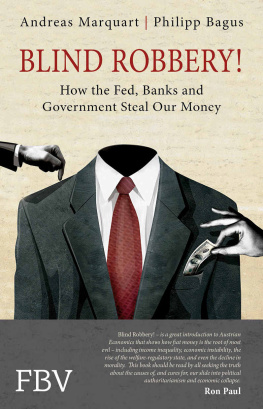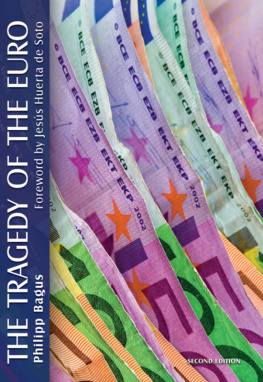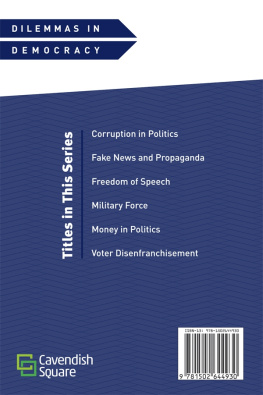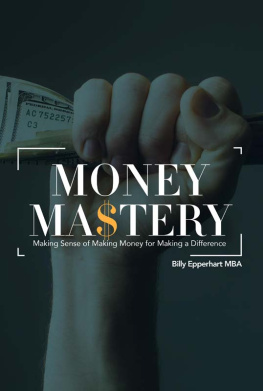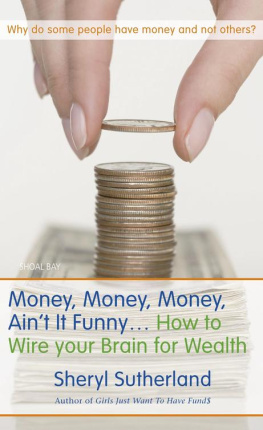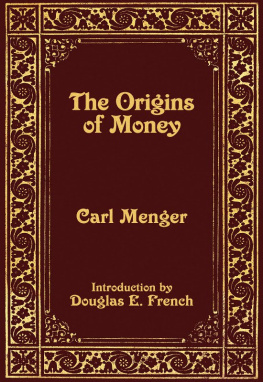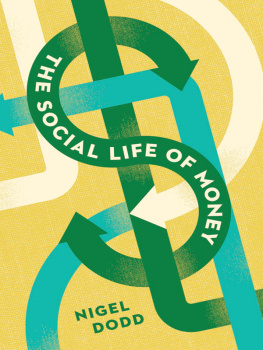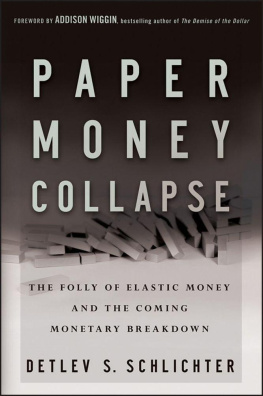Preface
Why do the topics of money, inflation, and central banking seem so mystifying? Why do otherwise well-informed people, even those who follow economic and financial news, know so little about how money really operates in society? Why dont we learn anything about money and banking in school? And how does this ignorance leave us vulnerable to political elites and their benefactors in the banking class?
Philipp Bagus and Andreas Marquart have the answers to these questions, and many more, in Blind Robbery! The book provides a superb introduction to the vital subjects of money and banking, in an accessible and highly readable style. Students, business people, and even seasoned academics will benefit from their treatment of the origins of money, the monopolizing role of states and central banks, the true nature of inflation, and the terrible economic harms caused throughout history by the political control of currency.
Perhaps most importantly, Bagus and Marquart address the unholy relationship between politicians and bankers in society today. Its a complicated subject, one the financial press scarcely considers. The authors, however, use plain language to explain how legislatures and central banks work together to create a rigged game rigged against savers, investors, retirees, and anyone hoping to build wealth outside the financial casinos. They illustrate not only the disastrous financial consequences of modern banking systems, but also the moral, cultural, and social impact of punishing thrift and rewarding consumption. In doing so, the authors carry forward the important work of Adam Fergusson ( When Money Dies ) and Jrg Guido Hlsmann ( The Ethics of Money Production ): societies marked by unchecked monetary expansion inevitably decline in character just as they decline economically.
Throughout the book, the principle and theory behind each argument are presented with admirable clarity. But Blind Robbery! is not a theoretical or academic treatise. On the contrary, its a real-world exposition of modern monetary systems written with an eye toward helping readers protect themselves from the economic and monetary dislocations our politicians seem hell-bent on creating. Readers especially will benefit from the explication of possible endgame scenarios for fiat currencies in Chapter 8.
Blind Robbery! is a fascinating and enjoyable book albeit a troubling one for anyone interested in money and banking in the modern era. Even readers already well-versed in the monetary theory of the Austrian school of economics, will enjoy the authors fresh approach to the subject. Its a must read for anyone seeking to understand how states and their central banks undermine real prosperity.
Jeff Deist, President, Mises Institute, Auburn ( Alabama, US A ) March 2016
Introduction: Why this book is so explosive
The biggest disaster in human history.
That is how economist Roland Baader (19402012) describes the states control over the money supply. This is a bold statement because almost no one dares to question the states monopoly on money creation these days.
How about you? Have you ever questioned the monetary system we have? No? Do you think that monopolies are bad? Economists usually describe them as leading to waste, inefficiency, and higher prices. So why should it be any different when it comes to money? Is not money that keeps its purchasing power over time something of great value to everyone? Would you let a state monopoly decide what and how much you eat every day? Of course not. But that is exactly what is happening with money!
If our money is so secure in the hands of the state, then why does it keep losing its purchasing power? You may object that a monetary system controlled by the state is still better than leaving such an important function to the so-called free market. But are you sure? Why is the central bank (the Federal Reserve in the U.S., or the European Central Bank in the eurozone) allowed to create more and more new money? Why does the state allow the commercial bank around the corner from you to create money out of thin air in the form of credit (loans)? Why is your bank allowed to loan out to others money that you have deposited into your checking account? After all, you might need that money again soon! When the money is loaned out (and a large portion of it is loaned out), how can it still be available to you when you want it?
What will happen to you if you print money? One thing is certain: you wont get past Go. You wont collect $200. But you will go directly to jail! You see, monopolists dont like competition. They want their monopoly protected.
Based on information from the European Central Bank (ECB), in the eurozone the M2 money supply, which consists of cash, checking deposits, and short-term savings deposits, has doubled since the year the euro was introduced. But if you live in Europe, did the money in your bank account double during that period? No? Did you at least see your income double, then? Again, probably not. Now ask yourself this question: If the money supply in the eurozone doubled, but your bank balances didnt, then is it not reasonable to conclude that the additional money must have ended up in the accounts of someone else? If that person already had more money than you, then he now has even more . In this case, the person who started out richer than you has become even richer, and relative to him you have become poorer. In the U.S., the M2 money supply has increased at an even faster pace. From 1999 to 2015, M2 almost tripled . Has your American bank account grown three times as large?
But if you expect this book to be a hate-filled rant against the evil rich and the CEOs who exploit their poor workers, and who must be forced by law to pay decent wages, or at least a minimum wage, then you would be wrong. Every person and this includes you acts from the same motivation. The motivating factor for human action is always the desire to improve ones own well-being and ones own situation.
No one should blame another for seeking to improve his situation by acquiring more money or more wealth . It is just human nature. If this motivation were not part of our nature, we would probably still be living in caves. What is important is which means or tools you use to enrich yourself. Some people are more focused than others in their pursuit of wealth, even to the point of using immoral or even criminal means.

